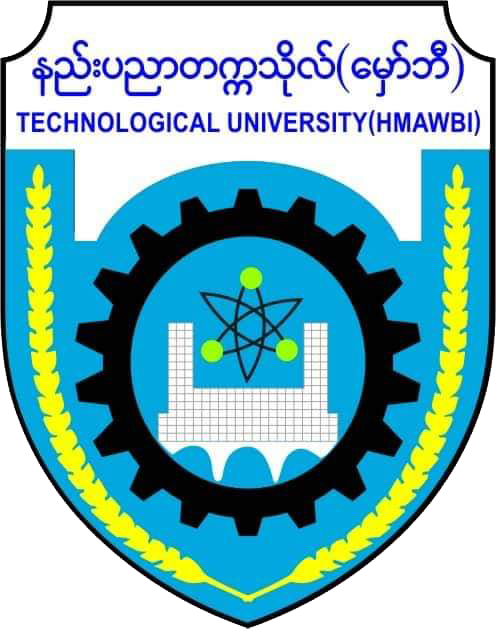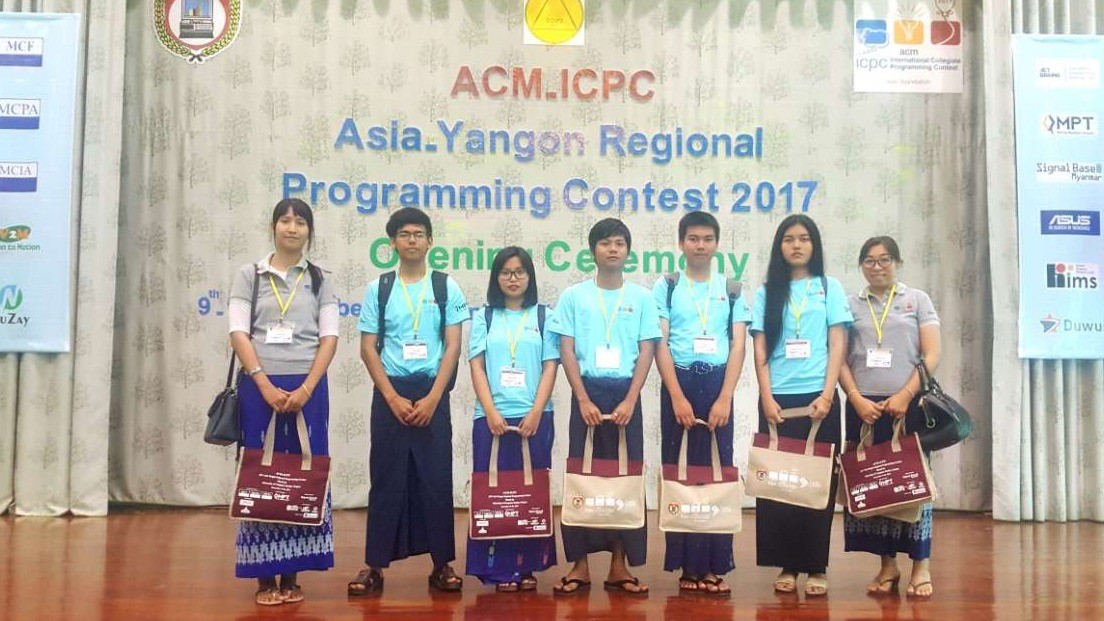
Technological University (Hmawbi)







It Department
To develop large scale software that powers business and industry, computer scientists use their technical and creative skills to improve people’s lives in almost every area imaginable. The complex software and hardware systems created by computer scientists impact all aspects of society and influence or transform work done in areas as diverse as medicine, education, music, travel and business.
Program Learning Outcomes (Graduate Attributes)
|
PLO 1. Acquire and apply fundamental knowledge of mathematics, engineering sciences, and computer sciences to effectively solve complex IT engineering problems |
|
PLO 2.Identify, formulates, and analyze the complex IT engineering problems leading to authentic conclusions based on a systematic approach by applying principles of mathematics, engineering sciences, and computer sciences |
|
PLO 3. Design solutions for complex IT engineering problems and develop computer-based systems and processes to meet desired requirements for societal and environmental considerations |
|
PLO 4. Conduct investigation of complex IT engineering problems using research-based knowledge and methodology to reach convincing conclusions |
|
PLO 5. Apply appropriate techniques and resources with modern ICT tools and lab equipment to predict and model complex IT engineering systems |
|
PLO 6.. Apply reasoning based on contextual knowledge to assess health, safety, legal and cultural issues, and consequent responsibilities related to professional IT engineering practice and solutions for complex engineering problems |
|
PLO 7. Understand the professional IT engineering knowledge and requirement to address real-world challenges for sustainable development |
|
PLO 8. Uphold ethical principles, professionalism, and social responsibility in their IT practices. |
|
PLO 9 Work effectively as an individual and as a member or leader of teams in multi-disciplinary settings. |
|
PLO 10. Communicate effectively on ICT technical concepts to both technical and non-technical environments through oral and written means such as design documentation, effective presentations and reports, and manual instructions |
|
PLO 11. Manage IT projects systematically based on knowledge of project management and finance principles. |
|
PLO 12. Recognize the importance of continuous learning and IT professional development, keeping up-to-date with emerging technologies and industry trends Programme Educational Objectives (PEOs) of Information Technology The Programme Educational Objectives are formulated in such a way as to describe and target probable and possible professional and career growth accomplishments for the graduates of the Engineering programme that are achievable and measurable a few years after graduation. The Department of Information Technology has established the following objectives: Objective 1: Produce graduates competent in practicing fundamental scientific and computer engineering principles in IT engineering professionals for creativity and innovation to a better society based on a deep understanding of core IT concepts. Objective 2: Produce IT engineers with effective leadership skills and the ability to work collaboratively as part of multidisciplinary teams, effectively communicating and coordinating with team members to achieve common goals. Objective 3: Produce graduates who practice professional ethics and moral values in all aspects of computer engineering, ensuring honesty, integrity, and social responsibility in their work and interactions and are committed to professional development through life-long learning. |